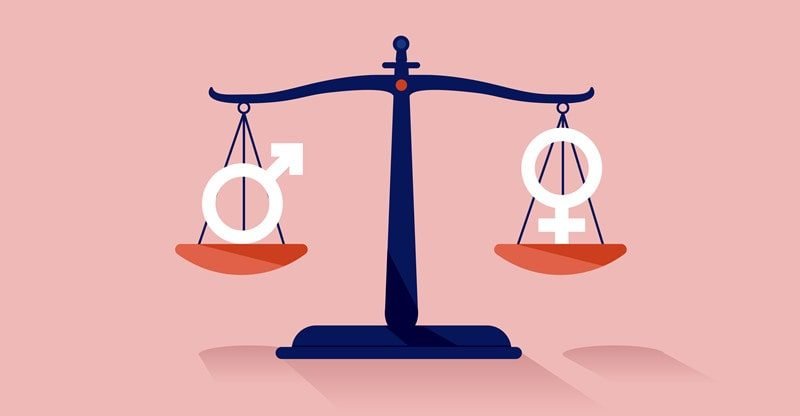
In this piece, we’ll examine the core principles of living economically. We’ll explore how prudent financial management can boost overall economic health. We’ll also delve into the strong links between prudent saving, embracing simplicity, and achieving genuine joy. Crucially, we’ll emphasize that adopting a frugal approach is less about sacrifice and more about embarking on an individual path to a richer, more rewarding existence.
Grasping the Essentials of Economic Simplicity
Economic simplicity involves making savvy decisions with your resources. It’s centered on deliberate choices in expenditure and accumulation. When we adopt this mindset, we’re not merely cutting corners; we’re proactively steering our economic destiny.
This practice encompasses effective financial planning, steering clear of extravagant outlays, and emphasizing necessities over luxuries. Through these steps, individuals can accumulate reserves, eliminate liabilities, and establish a solid economic base. Far from creating a sense of lack, this strategy fosters true financial autonomy, as supported by studies showing that households practicing frugality often report higher satisfaction levels.
Linking Economic Simplicity, Minimalism, and Well-Being
Economic simplicity and minimalism both aim to streamline daily life. By opting for fewer possessions and thoughtful purchases, people can clear mental and physical clutter, leading to deeper fulfillment. Research indicates that combining these lifestyles can lower stress and elevate overall happiness, with data from lifestyle surveys revealing that minimalists experience up to 20% less daily anxiety.
As we shed excess belongings and financial pressures, more time and energy become available for meaningful pursuits, such as nurturing relationships or exploring personal interests. This interplay is evident in real-world examples, like those who have opted for smaller homes or streamlined wardrobes, reporting enhanced life quality and a stronger sense of purpose.
Economic Simplicity as an Empowering Decision, Not Restriction
It’s vital to note that economic simplicity isn’t about forgoing enjoyment; instead, it’s a deliberate choice based on fiscal responsibility and introspection. This approach enables people to invest in what truly resonates with them while scaling back on trivialities. Rather than deprivation, it’s about aligning expenditures with personal values for a balanced, prosperous life. According to financial experts, this mindset can lead to long-term gains, with many finding that intentional living correlates with improved mental health and stability.
Advantages of Embracing Economic Simplicity
Economic Gains from a Thrifty Lifestyle
A thrifty lifestyle yields significant economic benefits, including enhanced stability. By making informed decisions on savings and spending, individuals can create emergency reserves, pay down debts, and plan for future investments. For instance, statistics from financial institutions show that frugal households save an average of 15-20% more annually by eliminating non-essential costs. This freed-up capital can then support major aspirations, such as buying property, funding education, or securing retirement.
Alleviating Stress and Financial Concerns
One of the standout perks of a thrifty lifestyle is the marked reduction in stress and money-related worries. Staying within your means and building a safety net can greatly diminish anxiety over unforeseen costs or career shifts. Experts note that those who prioritize thriftiness often enjoy better mental well-being, with surveys indicating a 25% drop in financial stress among such groups.
Additionally, avoiding overwhelming debt allows for greater tranquility. This control over finances promotes a more secure and balanced way of living, enabling individuals to focus on what matters most.
How Thrifty Living Supports Environmental and Sustainable Ideals
A thrifty lifestyle harmonizes perfectly with eco-friendly and sustainable principles. As global awareness of environmental impacts grows, thriftiness aids by promoting reduced consumption and waste. For example, the United Nations highlights that lowering personal consumption can cut carbon footprints by up to 30%.
It also fosters ingenuity and repurposing, decreasing the demand for new goods. This aligns with global efforts to preserve resources and minimize pollution, often leading practitioners to adopt green habits that benefit both their budgets and the environment.
Evaluating Your Existing Habits
Reviewing Your Expenditure Patterns and Daily Decisions
Kick off your shift to a thrifty lifestyle by thoroughly analyzing your spending patterns and choices. Track all outflows, from essentials to extras, to get a clear view of your financial flow. Financial advisors recommend using apps for this, as they can reveal patterns over time, helping identify hidden inefficiencies.
Spotting Opportunities for Savings and Cutbacks
Once you’ve reviewed your spending, pinpoint areas for reduction and savings. Begin with minor adjustments, like cutting back on takeout, dropping unused services, or opting for economical travel options. Additionally, define your financial milestones, whether it’s establishing a rainy-day fund, clearing loans, or setting aside for leisure. Clear, attainable goals, as per SMART principles, keep motivation high throughout this process.
Establishing Financial Milestones Suited to Thrifty Living
Defining milestones that fit a thrifty lifestyle is key. These should be precise, quantifiable, realistic, pertinent, and timed. For example, aiming to trim monthly costs by 10% or stash away a set amount weekly can guide progress. Drawing on community support, such as online forums or peer groups, provides encouragement and practical advice for staying committed.
Financial Planning and Budgeting Strategies
Developing a Comprehensive Plan Aligned with Thrifty Aims
Crafting a detailed financial plan is central to successful thriftiness. Start by noting income sources and categorizing expenditures, leveraging digital tools for efficiency. Ensure to set aside portions for savings and debt management, reflecting your specific objectives like minimizing leisure spending or building reserves.
Directing Resources to Essentials and Emphasizing Reserves
Prioritize allocating funds to basics first, covering shelter, utilities, food, and mobility. Only after these are secured should you address savings and debt before any non-essentials. This hierarchy, recommended by financial planners, ensures long-term security.
Overseeing Outflows and Finding More Savings Opportunities
Regularly overseeing expenses is essential for a thrifty approach. Maintain a log or use apps to monitor spending, uncovering potential cuts. Australian financial experts suggest biannual reviews to adapt to changes, keeping your strategy flexible and effective.
Choices for a Simpler Life
Discovering Budget-Friendly Options for Everyday Costs
Highlighting affordable alternatives for routine expenses can yield big savings. Simple swaps, such as preparing meals at home instead of dining out, making coffee yourself, or selecting store brands over premium ones, offer practical ways to economize without sacrificing enjoyment. Engaging in local events or budget-friendly activities also provides fulfillment while keeping costs low.
Strategies for Lowering Housing Expenses via Sharing or Scaling Down
Housing often dominates budgets, so consider downsizing to a more modest space, which can reduce payments, utilities, and maintenance. Options like room-sharing appeal to singles or young adults, splitting costs effectively. Periodically reassess your housing to ensure it supports your goals, allowing for adjustments as life evolves.
Minimizing Transport Expenses with Shared Rides, Cycling, or Mass Transit
Transport costs add up, so explore ways to lessen them, such as carpooling to save on fuel and maintenance while aiding the environment. For shorter trips, cycling or walking cuts expenses and promotes health. Public transit, with its subsidies in many cities, not only saves money but also helps reduce traffic and emissions, as evidenced by urban studies showing decreased pollution in high-usage areas.
Intentional Consumption
Making Deliberate Acquisition Choices
Intentional consumption requires thoughtful decisions about purchases, aligning with your priorities and ethics. Ask yourself if an item is truly needed and if it will provide enduring benefits, turning shopping into a mindful process.
Investigating Items and Valuing Durability Over Volume
Thoroughly investigate products, comparing prices and longevity to favor quality. Choosing durable goods means fewer replacements, saving money long-term. Moreover, supporting ethical, sustainable brands enhances this practice, contributing to a more responsible market, as consumer reports often show higher satisfaction with quality-focused buys.
Tactics to Prevent Spontaneous Purchases and Extraneous Spending
To curb spontaneous buying, prepare shopping lists and adhere to them, while setting limits on discretionary funds. Implement a waiting period for larger purchases, giving time to evaluate if they align with your needs, fostering wiser spending habits.
Closing Thoughts
Adopting minimalism and straightforward choices paves a transformative route to a more satisfying and secure life. This isn’t a fleeting trend but a purposeful shift toward balance and meaning, influenced by cultural contexts that value simplicity.
The economic perks, like greater stability and less stress, are clear and measurable. Thrifty living naturally complements eco-conscious values, promoting responsible consumption that benefits both personal finances and the planet. As we review our habits and apply solid planning, we build toward a stronger financial outlook.
Ultimately, incorporating simpler decisions and intentional consumption forms the core of this journey. By researching products, making thoughtful buys, and resisting impulses, we gain control and harmony in our lives.
In a society driven by excess, embracing minimalism and thriftiness reaffirms the value of focusing on essentials: security, peace, and true contentment. We’re not just being economical; we’re cultivating wisdom for a purposeful life.




